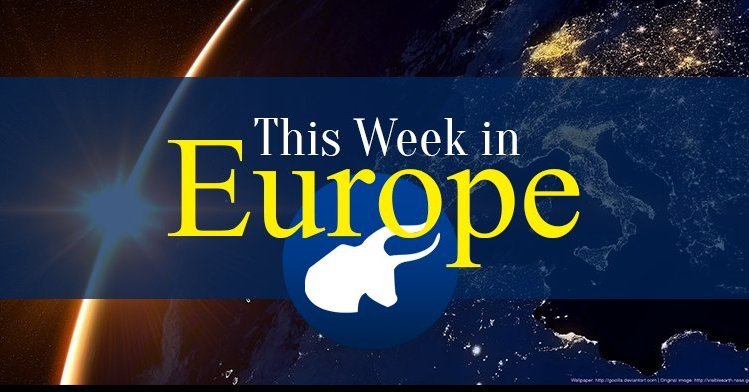Rutte skeptic of a “federal Europe”
Speaking at the annual congress of the Alliance of Liberals and Democrats (ADLE), Dutch PM Mark Rutte challenged the vision which proposed more integration and that, according to him, was “coming from France”. Rutte thus showed his opposition to the reforms proposed by French President Emmanuel Macron, among which the introduction of a new class of transnational MEPs and a common Eurozone budget.
Iceland gets first Green PM
Iceland, considered by the World Economic Forum to have the smallest gender gap in the world, will see Katrin Jakobsdottir, the leader of the Leftist-Green Movement, becoming the new Prime Minister of a coalition government. Together with the liberal-conservative Independence Party and the center-right Progressive Party, the coalition will have a one-seat majority due to the dissidence of two members of the Leftist-Green Movement. Jakobdottir will become the only ruling Green PM in the world.
EU to be part of “Libya taskforce”
The UN, the African Union and the EU agreed to jointly intervene in Libya in order to “save and protect lives of migrants and refugees along the routes and in particular inside Libya.” The taskforce will aid Libyan state authorities in taking down criminal networks. The announcement, given by French president Emmanuel Macron, came after CNN showed footage of people being sold as slaves in Libya.
Bosnian Croat commander poisons himself while on trial
Sloboban Praljak, 72, died after taking a lethal dose of poison from a flask as the ruling was read out in the Hague. His 20-year prison sentence came after Praljak was found guilty of committing violations against the laws of war, crimes against humanity and breaches of the Geneva Conventions during the Croat-Bosniak War.
Glyphosate usage renewed for 5 more years
On Monday, EU member states agreed to a 5-year renewal period for the controversial herbicide glyphosate, used by companies such as Monsanto. The decision came with 18 in favor, 9 against (Belgium, Greece, France, Croatia, Italy, Cyprus, Luxembourg, Malta, and Austria) and one abstention (Portugal). The vote in favor given by the German representative brought the decision above its requested 65% threshold. The decision created waves of frustration among European leaders, but also from Monsanto, which expected a 15-year renewal.
EU Court of Auditors: SES failed to meet its goals
On Thursday, the EU Court of Auditors stated that the Single European Sky (SES) failed to reduce air traffic delays, fragmentation of the air space but most of all, it failed to reduce costs. Meant to be a tool against national monopolies and fragmentation, the 2004-created policy, which consists in a shift of management from the national to the European level, is considered to not yet have been realized fully by the Auditors.
EU and Armenia sign CEPA
Dubbed CEPA, or the Comprehensive and Enhanced Partnership Agreement, the agreement comes as a replacement for the Partnership and Cooperation Agreement from 1999. Pulled back from a 2013 free trade agreement with the EU by Russian blackmail regarding the country’s joining of the Eurasian Economic Union, Armenia finally managed to find a middle ground that combines best of both worlds. While CEPA does not include a free trade agreement, it puts Armenia ahead of Belarus and Azerbaijan by keeping most of the provisions of the old agreement.
Estonia proposes scrapping immigrant quotas
Holding the EU’s rotating presidency, Estonia proposed a plan according to which EU countries would only have to take migrants from each other if the frontline state and the host country both agree on it. As a workable middle ground, the proposal would allow aid to be continue being distributed among countries in the future, but removes the “threat” of the quotas.
EU Parliament aims at 35% renewable energy
The Parliament’s industry committee plans to extract 35% of all energy in the EU from renewable sources by 2030. MEPs also target a 40% increase in energy use efficiency by 2030.
Protests against AfD meeting in Germany
Protests against Alternative for Germany’s conference took place in Hanover. Using water cannons, batons and pepper spray, the police dispersed the protesters, nevertheless several people were injured and 10 persons were taken to custody. AfD entered the German parliament in September and it is possible that they will become the biggest non-government party, if Merkel’s CDU and Schultz’ SPD do not make a coalition.


Follow the comments: |
|
